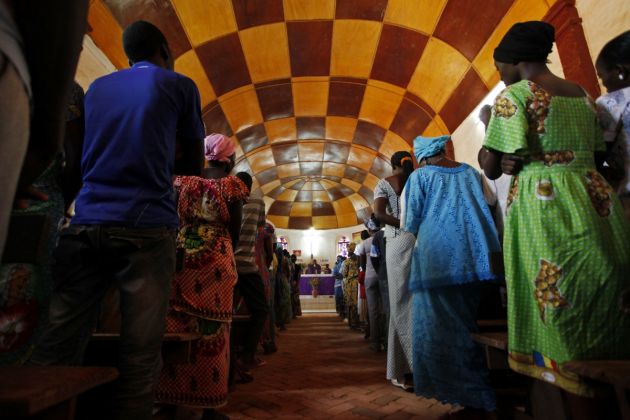Central African Republic interim leader denies genocide threat

BANGUI (Reuters) - Central African Republic transitional leader Michel Djotodia has denied European assertions that his country is on the brink of genocide and all-out inter-religious war.
The impoverished but mineral-rich nation of 4.6 million has descended into chaos since Djotodia led Seleka rebels, many of them from neighbouring Chad and Sudan, to the riverside capital in March, ousting President Francois Bozize.
Though Djotodia has dissolved the rebel coalition, which has been accused of human rights abuses, his government's failure to stem the violence has prompted calls at the U.N. Security Council for international intervention to restore order.
France has prepared to boost its force in its anarchic former colony to at least 1,000 soldiers after the passing of a U.N. resolution to improve security until a 3,600-strong African Union (AU) force is operational.
French Foreign Minister Laurent Fabius warned had warned late in November that the country was "on the verge of genocide."
EU humanitarian chief Kristalina Georgieva said the country faced the twin risk of a state collapse and potential genocide because of the increasing tit-for-tat killings between the Christian majority and Seleka-backing Muslims.
Speaking at his residence in Camp de Roux , a colonial military camp on a hill that overlooks the Oubangui River, in late November Djotodia attributed the violence to settling of scores between those loyal to the previous government and some Seleka elements.
"We hear people talk of inter-religious war, sometimes they talk of genocide. What group wants to exterminate the other? Who is planning to exterminate the other?" Djotodia asked.
"For me, there is nothing to show that we can even talk of what is going on as genocide," Djotodia said. "This is simply vengeance. A regime committed abuses, it is now gone. Its victims are taking revenge, that is all."
"There's no genocide, there is not even an inter-religious war. All of this is made up to manipulate the opinion of the international community," he said, without elaborating.
Some 460,000 people, a tenth of the population, have fled the sectarian violence that has gripped the landlocked country.
In Bossangoa, former President Bozize's home region about 300 km (185 miles) north of the capital, about 40,000 Christians have been displaced, with several thousand seeking refuge at a church.
Djotodia dismissed concerns about them, saying those gathering at the Bossangoa church had done so because they knew they would get free food and water there.
"He who wants to drown his dog, accuses it of having rabies, that's all. Our situation is no less dramatic than that in other countries but it is portrayed as such. It is unfair," he said, sitting on a embroidered couch with fake gold ornaments.
Outside his office, hundreds of his heavily armed fighters in camouflage and red berets loiter about the camp, some sleeping on the floor and setting up makeshift tents. (
Central African Republic is rich in diamonds, gold and uranium but despite such resources, most people remain poor. The country has seen little stability in five decades and France has intervened more since independence in 1960 than in any of its former colonies.
It also lies at a crossroads of conflict in the heart of Africa, with Sudan, South Sudan and Somalia to the east, the Islamist threat in the Sahel region to the north and the revolts of the Great Lakes to the southeast.
(Writing by Bate Felix; Editing by Alistair Lyon)